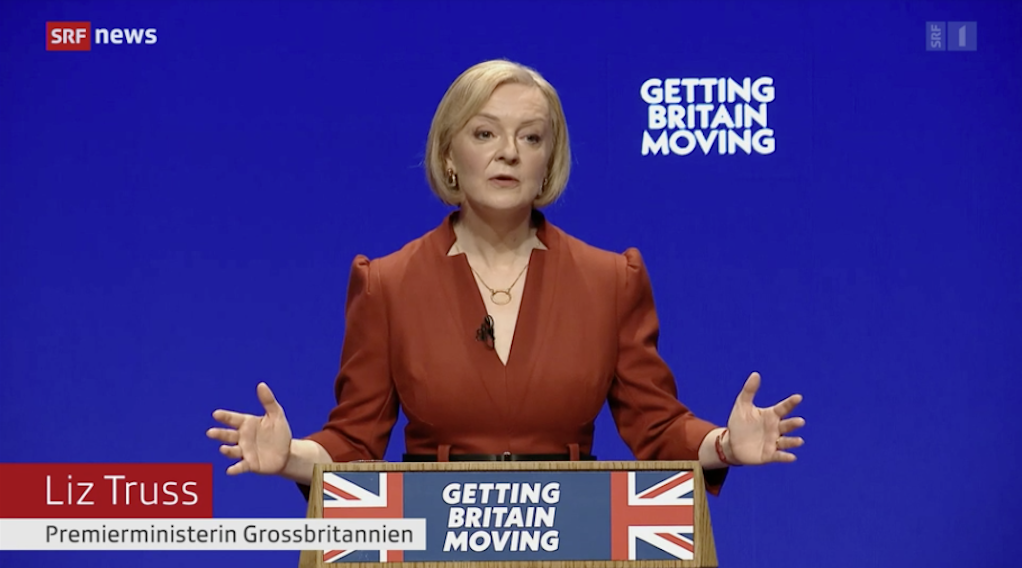After British Prime Minister Liz Truss’ speech at the Conservative Party conference in Birmingham, economists and the mainstream media expressed their serious doubts that Truss’ economic and fiscal policies would lead to the desired growth. On the contrary: you expect lower GDP growth for 2023 than for the current year, which is currently about three percent in nominal terms. The International Monetary Fund forecasts only 0.5 percent growth for Great Britain next year (International Monetary Fund).
Obviously, it doesn’t matter how the growth happens
GDP can only be increased if more is consumed and invested, or if more products and services can be sold abroad. Liz Trust didn’t say a word about Which consumption and Which Increase exports. It is enough to lower taxes and liberalize regulation (ie loosening regulations to protect the environment and health). Then economic growth starts automatically.
The reality is different: in the past 25 years, economic growth in Great Britain and most industrialized countries has come not through tax breaks, subsidies or deregulation, but almost exclusively on credit – with a higher level of public and private debt. The effect of ‘downstream flow’ has long been disproved (see Infosperber and Hubei / Limberg).
But another question should be asked in the introduction: What kind of additional consumption should lead to economic growth? The mantra that more economic growth is a good thing in itself, no matter what grows, is long outdated. While a more wasteful exclusion society can contribute to the growth Truss hopes,
- If only the rich and wealthy benefit from growth, then growth is both socially and politically dangerous;
- If more short-lived products are consumed, (must) get rid of clothes, furniture, and electronic devices faster, and even more heavy cars are bought instead of small ones, etc., the growth destroys the environment and is not suitable for the grandchildren.
The common motto is: The highest possible economic growth is necessary to eradicate poverty and hunger, secure pensions, create sufficient profitable jobs and provide funds for environmental protection and health care. If that was really the case, we would have been living in heaven a long time ago. This is especially true of the United States, which has the fifth highest per capita GDP. The people there must be doing a great job. But the reality shows that in developed industrial countries the extra GDP is inappropriate for measuring overall prosperity, let alone happiness and quality of life.
Economists, politicians and the media must stop astonishing the public with good or bad growth numbers and subject everything to growth goals: tax and social policy, environmental policy, the allocation of subsidies, even democratic rights. Time and time again, reasonable and innovative proposals are socially and politically blocked on the pretext that they will harm the business site and its growth.
Advanced industrial countries must bury the idea that 2 per cent growth is better than 1 per cent or 0 per cent. Rather, it depends on which consumption has increased and which has decreased. If fewer products are bought but last longer, if less energy is transferred and less energy is consumed and wasted overall, that’s good news for our future prosperity – even if that means GDP is growing less quickly or not at all. .
Radical change is, of course, necessary.
Economist and researcher in happiness Richard Layarda former professor at the London School of Economics, calls for a fundamental change in the course of economic policy: countries should not try to increase growth, but rather to make their citizens happy.
The goal of doing business is not to accumulate as much material wealth as possible, but that
- As many people as possible feel satisfied and happy;
- There is as little poverty and misery as possible.
In order for you to be satisfied and happy with your life, some external and internal factors are necessary:
- External factors: 1. Personal relationships and friendships. 2. Work climate. 3. Contacts when shopping and free time. 4. Feeling able to trust others. 5. The feeling of living in a just society and the ability to have a say.
- Internal factors: health, including mental health. No anxiety, depression or dementia.
The Liz Truss government program with the three primary goals “Growth – Grow – Grow” is part of the repertoire of the last century.
___________________________________
The author’s interest in the topic
number. Urs b. 16.80 Swiss Francs; 15.00 EUR.
_____________________
Opinions expressed in articles on Infosperber correspond to the author’s subjective assessments.

“Alcohol buff. Troublemaker. Introvert. Student. Social media lover. Web ninja. Bacon fan. Reader.”






More Stories
The Body Shop files for bankruptcy in the UK
Kaspersky: All employees in the US must leave – business activities will be terminated
Resettlement in the United States and its Impact on U.S.-Focused Firms